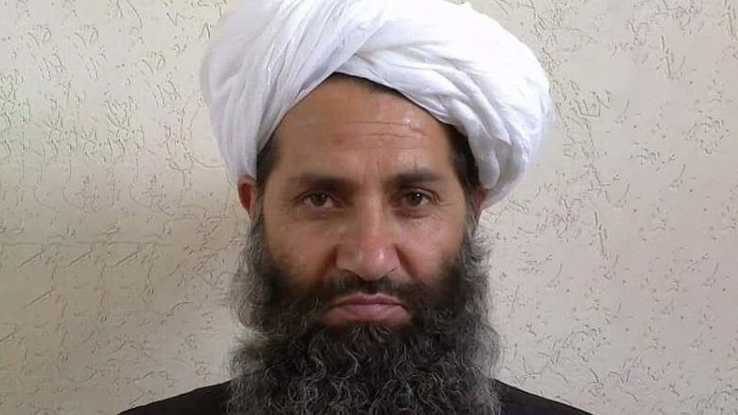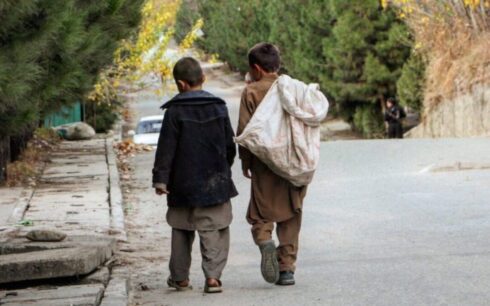In his Eid message, Taliban leader Hibatullah Akhundzada highlighted efforts to “strengthen religious centers,” ensure the “Sharia rights” of all people, maintain relations with countries “within the framework of Sharia,” and emphasized the responsibility of all to “protect the Islamic system.”
As schools for girls above the sixth grade have been closed for 1,000 days, Akhundzada claimed significant measures have been taken “to promote religious rituals and strengthen religious centers.”
He described these efforts as “goals and values” for which the people have “fought a long struggle.”
Despite the Taliban not providing reports on the revenue from the country’s mines, Akhundzada asserted that “our public assets, such as mines, land, forests, and other properties, are protected as public wealth.”
Amid numerous reports of human rights violations, especially against women and girls, Akhundzada insisted that under Taliban rule, “the Sharia rights of all citizens are ensured and protected, no one can oppress or violate the rights of others, oppression is prevented, and the rights of the oppressed are upheld.”
He also addressed criticisms from the United Nations and other organizations regarding the Taliban’s judicial processes and the lack of access to prosecutors for the accused. Akhundzada claimed that “Sharia” has been implemented in the country and measures have been taken to “reform society based on Sharia principles.”
Regarding the Taliban’s international relations, Akhundzada stated that the Taliban seek political and economic relations “with the entire world, especially Islamic countries, within the framework of Sharia” and have fulfilled their obligations in this regard. He described the protection of the Taliban regime as a “shared responsibility of everyone.”
Akhundzada’s message comes as the Taliban regime remains unrecognized by any country. According to a United Nations report, over 23 million people in Afghanistan are in urgent need of assistance, women’s and girls’ rights are being violated, and females are barred from attending schools, universities, and working in non-governmental organizations.
Most recently, the Taliban decided to reduce the salaries of female employees in government institutions, including schoolteachers, to 5,000 Afghanis.





